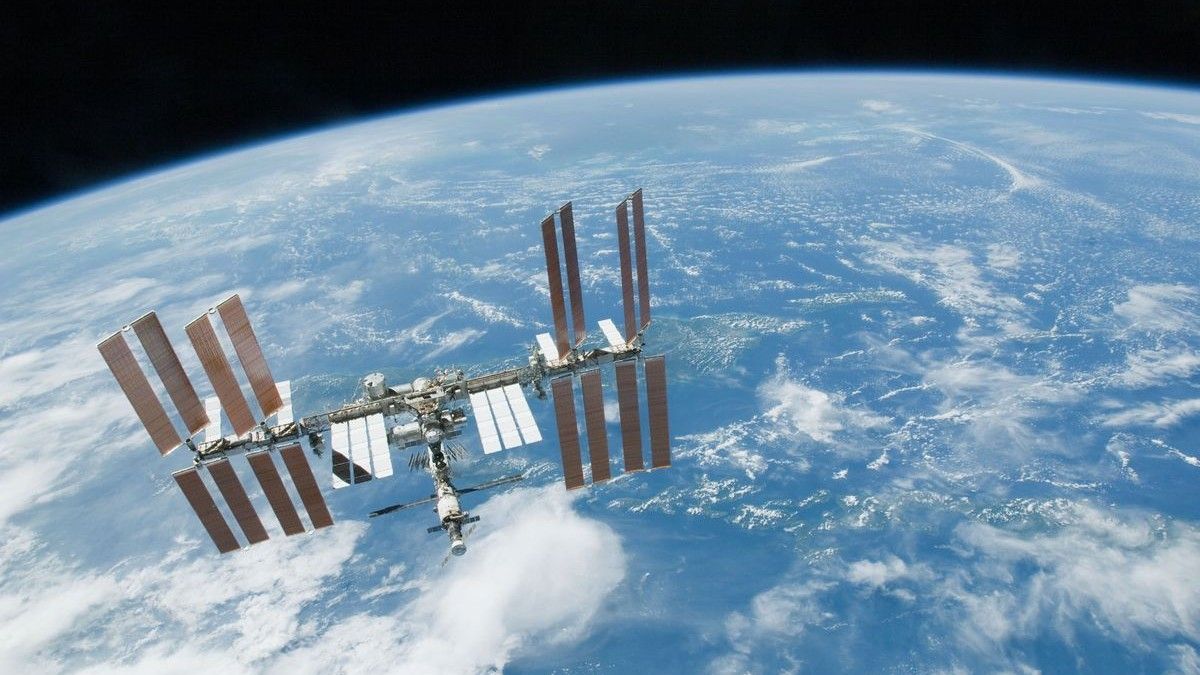NASA has selected SpaceX to develop a vehicle that will bring the International Space Station to a fiery end when the time comes.
The space agency first asked U.S. aerospace companies for proposals in March 2023 and then again in September of that year. The request was for a “space tug” vehicle that could help deorbit the U.S. sections of the International Space Station (ISS) safely.
On Wednesday (June 26), the agency issued a statement announcing that SpaceX has been selected to develop and deliver the “U.S. Deorbit Vehicle” as it’s known. The contract is worth up to $843 million; that total does not include any launch costs, however, and is for the vehicle development only. The vehicle will be responsible for disposing of the space station “in a controlled manner after the end of its operational life in 2030,” the statement adds.
NASA leadership praised the space station’s legacy in the statement, adding that deorbiting the ISS will help pave the way for planned commercial space stations.
“Selecting a U.S. Deorbit Vehicle for the International Space Station will help NASA and its international partners ensure a safe and responsible transition in low Earth orbit at the end of station operations. This decision also supports NASA’s plans for future commercial destinations and allows for the continued use of space near Earth,” said NASA’s Ken Bowersox, associate administrator for Space Operations Mission Directorate at the agency’s Headquarters in Washington.
“The orbital laboratory remains a blueprint for science, exploration, and partnerships in space for the benefit of all,” Bowersox added.
Several major ISS partners are committed to operations through 2030, while Russian space officials have confirmed their support through 2028.
While the 2030 end date has been referenced in NASA budgetary materials in recent years, some NASA officials have stated that the station could potentially remain operational past that date. “There’s nothing magical that happens in 2030,” Steve Stich, manager of NASA”s commercial crew program at Johnson Space Center (JSC) in Houston, said during a Jan. 25, 2024 briefing.
Stich added that the ISS will continue operations until commercial space stations are in orbit and ready for crews. “We want [the commercial stations] to be supportive, and then when they’re ready to go, that’s when ISS will move out of the way,” Stich said.
Several commercial space stations are in various stages of development. Axiom Space is developing its Axiom Station, for instance, while Blue Origin is planning its own, known as Orbital Reef, alongside Sierra Space, Boeing and Amazon.
Voyager Space also has its Starlab complex in the works with help from Lockheed Martin and Northrop Grumman. And California-based Vast Space plans to launch its Haven-1 module to orbit in 2025 aboard a SpaceX Falcon 9 rocket.











/https://tf-cmsv2-smithsonianmag-media.s3.amazonaws.com/filer_public/34/31/3431771d-41e2-4f97-aed2-c5f1df5295da/gettyimages-1441066266_web.jpg)








Discussion about this post